Looking to update your risk manager resume? Good call! After all, as a risk manager, you leave nothing to chance and prepare for every eventuality.
It's your responsibility to identify, analyze, and assess safety and security risks, and make plans to limit them. In other words, financial success of a company might be, to a large extent, depending on your skills and experience. And this is exactly the message your resume must convey. Follow our guide, packed with resume templates, writing tips, detailed examples, and samples, to make your resume shine!
Keep on reading and learn how to:
- Use the best possible risk manager resume template
- Write a risk manager professional summary that counts
- Put the the most effective risk management skills on your resume
- Create a powerful risk manager work experience
- Make your risk manager education section count
- Top additional sections to put on your risk manager CV
- Access top resources for job-seeking risk managers
Still looking for a job? These 100+ resources will tell you everything you need to get hired fast.
1. Use the best possible risk manager resume template
Your resume formatting matters big time.
You won't need a complex key risk indicator to measure how dicey it is to submit a resume that simply doesn't look slick.
Let us take a look at some mistakes you should definitely steer clear of when it comes to structuring your resume template.
Avoid these, and your resume format will work like a charm
Things to avoid when formatting your risk manager resume
- Large chunks of text
- Too many pages
- Not enough white space between individual sections
- Small headings
- Spelling errors
- Flashy images
- Bright colors
- Stylish typeface
Now that you know what to avoid, ensure that your resume sections are structured neatly, ideally into two columns, using reverse chronological order whenever it applies.
Choose your preferred template and make your resume shine.
2. Write a risk manager professional summary that counts
Your mission is to maintain a recruiter’s attention, and sway them to dedicate their 7 seconds to reading your resume until they are smitten.
How to do it?
Use those 3-5 lines of professional summary to show yourself in the best light possible, and remember to refer to the job posting at all times.
The aim is to use keywords from the job ad, link them to your best achievements, and prove to the company that their next quarter will be worth only with your exceptional risk management skills.
Quantify your accomplishments whenever possible.
Risk manager professional summary example
Enthusiastic and experienced Risk Manager with 6+ years of experience in risk and issue management, with a strong background in finance and retail banking. Adept at working and performing well in rapidly changing business environments. Rebuilt sales and client input processes that led to a 57% sales increase of core products. Mentored 20+ professionals on current risk management topics.
3. Put the the most effective risk management skills on your resume
Have you ever thought about skills you use on a daily basis for your work?
If you have not, now is the time.
Draft your risk management skill-set, and compare it with the job posting requirements. Use the matching skills at the top of your list, and add any extra relevant competencies you possess.
Use the following risk management skill-sets for inspiration:
The best risk management soft skills for your resume
- Outstanding Communication
- Analytical Skills
- Strategic Thinking
- Problem Solving
- Decision Making
- Business Acumen
- Negotiation
- Active Listening
- Collaborative Skills
- Accuracy
- Ability to Work Well Under Pressure
Effective hard skills for your risk management CV
- ISO
- BI
- Bloomberg
- Gaap
- Scrum
- Agile
- Numeracy
- Project Management
- Risk Governance Processes
- Financial Analysis and Forecasting
- Statistics
- Project Management Methodologies
4. Create a powerful risk manager work experience
There is no doubt that you've had an array of duties and responsibilities in your roles. Should you, however, mention them all? Well, you could try, but you would pretty much put your CV on the line.
Follow these tips to avoid that we’ll-keep-your-resume-on-file message from your prospective employer:
- List your most recent job first.
- Be transparent about whom you worked for and for how long.
- Tailor your work experience, and use keywords from the respective job posting.
- Your accomplishments are more important than your job duties.
- Quantify your achievements.
- Write 5-6 bullet points to maintain clarity and readability, and avoid writing large chunks of text.
Now all is set for you to write an outstanding job experience section.
Risk manager job experience example
Bellroad Corporation, Austin, Texas
Risk Manager
2015–2021
- Discovered, analyzed, and documented areas of potential financial risks, including asset-backed risk, credit risk, foreign exchange risk, and liquidity risk.
- Significantly contributed to the development of an innovative financial model and revenue forecasts.
- Rebuilt sales and client input processes that led to a 57% sales increase of core products.
- Mentored 20+ professionals on current risk management topics.
- Successfully reduced required reserve for liability claims by $1,000,000.
5. Make your risk manager education section count
You burnt the midnight oil over and over again to pass your exams. Well, now is the time to put it in use and leverage your education.
Applying for a risk manager position, your chances may go up with a degree in fields such as accounting, business, finance and economics, engineering, risk management, statistics or other related disciplines.
In any way, you can make your risk manager CV shine even more if you just mention your relevant coursework, areas of interest or your best accomplishments. However, always make sure that they are related to the job you are applying for.
Listing education in your risk manager CV
University of Europe
BA in Accounting
2010–2013
- Area of interest: Advanced Managerial Accounting
- Excelled in Business Statistics
- Relevant Coursework: Accounting Software and Information Systems, Auditing, Business Statistics, Intermediate and Advanced Managerial Accounting, Business Statistics, Business Law
6. Top additional sections to put on your risk manager CV
There is hardly a formula that will point at the right extra section. The best additional piece of information for your CV is the most relevant one. The one where your exceptional risk manager skills are exposed.
What section is it for you?
Is it a conference you attended in San Francisco, listening about sustainable supply chains and risk management?
Or have you planned a charity event, applying your project management skills?
Pick the best sections for your resume and make them sparkle:
- Conferences
- Volunteering Activities
- Accomplishments
- Awards
- Language Skills
- Certifications
- Projects
- Interests
- Training
Listing additional sections in your risk manager resume
Conferences
- International Conference on Sustainable Supply Chains and Risk Management (ICSSCRM), March 2020
Volunteering Activities
- Fund Allocator, SOS Children's Villages International, March 2019 - April 2020
- Organized four successful fundraising events, which raised over $5,000 in total for children in need.
7. Valuable job search resources for risk managers
Yes, looking for a fresh start can be daunting at first, but once you get into the flow, you'll see that it can actually be quite exciting! And, with the right tools and a strong risk manager resume, you'll be on your way to finding the perfect work opportunity sooner than expected:
- Job boards for risk managers: If you're looking for the most straightforward source of job postings pertaining to risk management, visit platforms like Careers in Risk, eFinancialCareers, or RiskManagementWeb
- General job search platforms: On the other hand, websites that don't limit their results to a single professional area, such as LinkedIn, Indeed, Glassdoor, Monster, and SimplyHired, are definitely worth your while too.
- Consulting firms: Alternatively, you can go straight to the source and inquire about job vacancies at consulting firms like Deloitte, KPMG Risk Consulting, or EY Risk Services.
- Professional associations: Whether you're looking for job postings, training programs, or networking events, organizations like the Professional Risk Managers' International Association (PRMIA), the Global Association of Risk Professionals (GARP), and the Risk Management Society (RIMS) might provide just what you need.
- Specialized publications: As an inherent part of your profession, you need to keep an eye on the latest business developments, trends, and news. By following media like “Risk Management Magazine,” “Risk Analysis: An International Journal,“ or “Risk&Compliance“ you keep yourself in the loop.
- Continuous education: It doesn't matter how far in your career you currently are, you'll always need to gain new skills and keep those you already have sharp. For that reason, you should seek out new challenges in the form of courses and certificates offered by platforms like Coursera, Udemy, Khan Academy, or edX.
During a job hunt, staying resilient is key! It might feel tough at times, but keeping a positive attitude can make all the difference. Remember, every "no" brings you closer to a "yes."
Risk Manager Resume FAQ
How can I effectively showcase my skills as a risk manager on my resume?
Firstly, remember to tailor your resume to highlight specific risk management skills mentioned in the job posting. For example, risk assessment, mitigation strategies, compliance, and crisis management. Also, use concise bullet points to demonstrate your skills in action and what accomplishments you've gained when faced with various types of risks. Thirdly, always quantify your achievements where possible, such as reducing financial losses, improving compliance rates, or enhancing operational efficiency through risk management initiatives.
What are common mistakes to avoid when crafting a risk manager resume?
By far the worst mistake you can make is NOT customizing your resume to align with the candidate requirements. Other minor, but no less damaging, errors include errors in grammar, spelling, or formatting. All of these can reflect badly on your professionalism and attention to detail. That's why proofreading is so important!
How can I ensure my risk manager resume is good to submit via ATS?
By incorporating keywords! First of all, you need to carefully review the job description for key terms and phrases related to risk management, regulatory requirements, industry-specific knowledge, and desired skills. Then weave these keywords naturally throughout your resume, especially in the resume summary, skills section, and work experience section, to improve your resume's visibility to applicant tracking systems (ATS).
What is the proper way to format an effective risk manager resume?
Opt for a clean, professional layout that is easy to read and navigate. Mark your sections with clear headings and use bullet points to organize your information. Make sure your formatting style is consistent throughout your resume, including font type and size, spacing, and alignment, to maintain visual coherence and professionalism. Let's be honest here, formatting can be a real pain in the neck! Why waste your time with margin settings when you can use templates that have been created by professional designers?
What role does continuing education and professional development play in my risk manager resume?
By including any relevant certifications, training programs, workshops, or conferences you've attended on your resume you show potential employers your commitment to ongoing learning and skill enhancement. Companies want to hire people who are willing to work on their skills — simple as that. This can also help you stand out from other candidates and showcase your expertise in specialized areas of risk management.

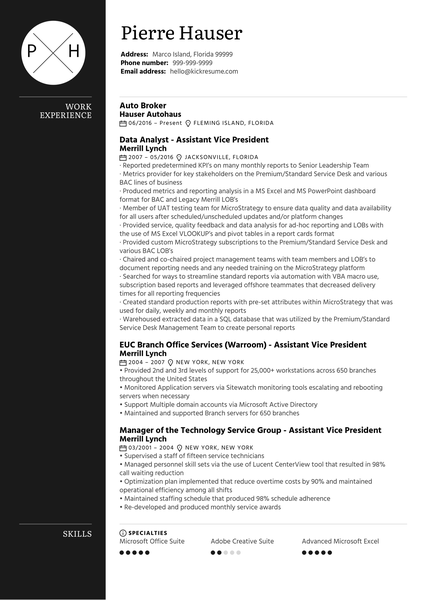


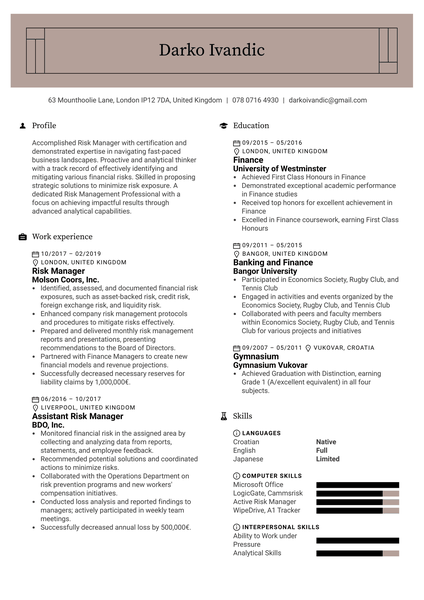
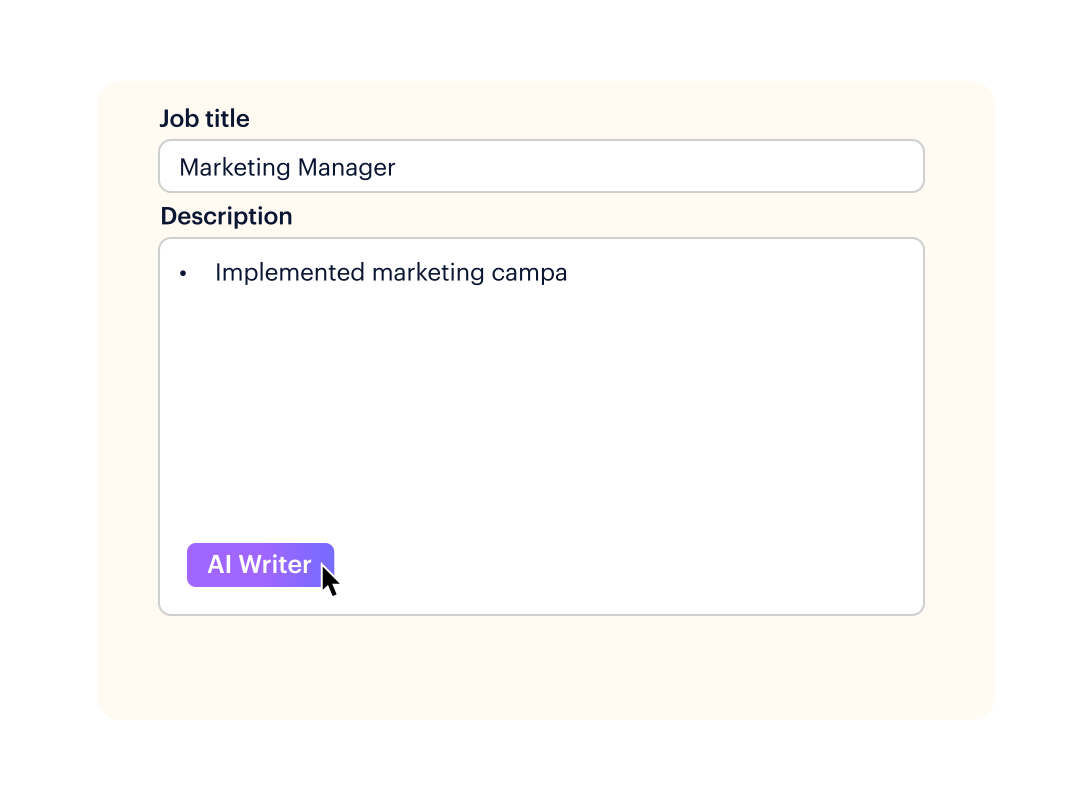

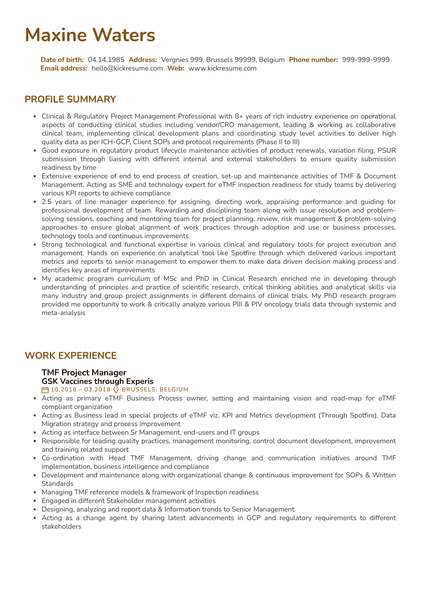
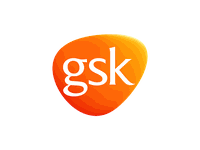
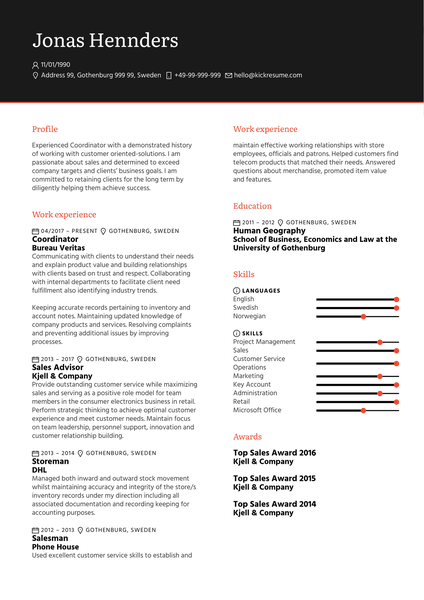


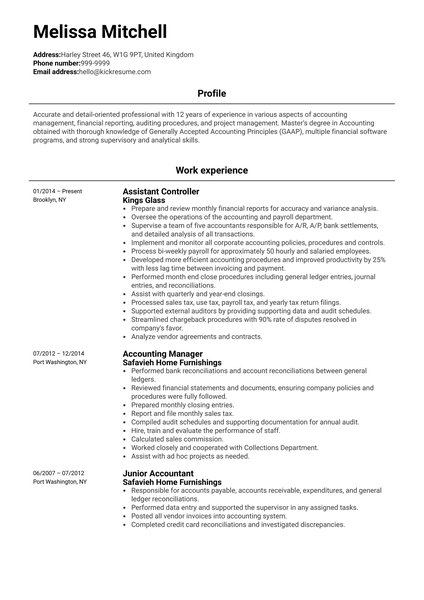
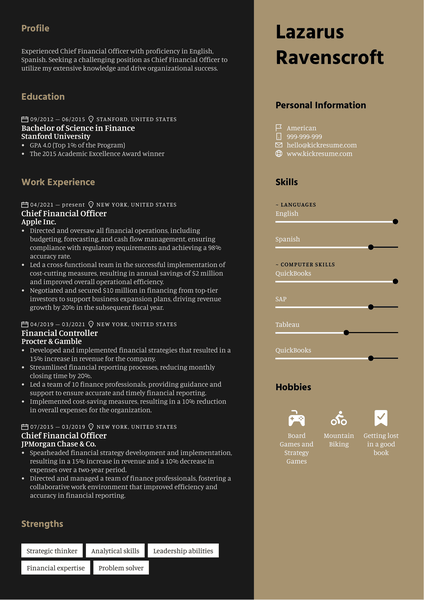


![How to Write a Professional Resume Summary? [+Examples]](https://d2xe0iugdha6pz.cloudfront.net/article-small-images/i-Profile.svg)
![How to Put Your Education on a Resume? [+Examples]](https://d2xe0iugdha6pz.cloudfront.net/article-small-images/i-Collage-Universities.svg)
![How to Describe Your Work Experience on a Resume? [+Examples]](https://d2xe0iugdha6pz.cloudfront.net/article-small-images/Experience.svg)


